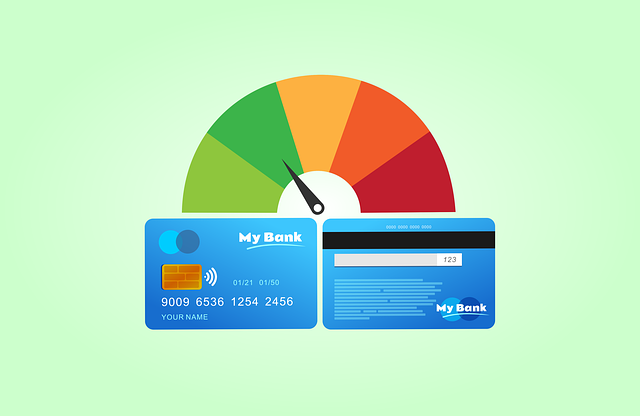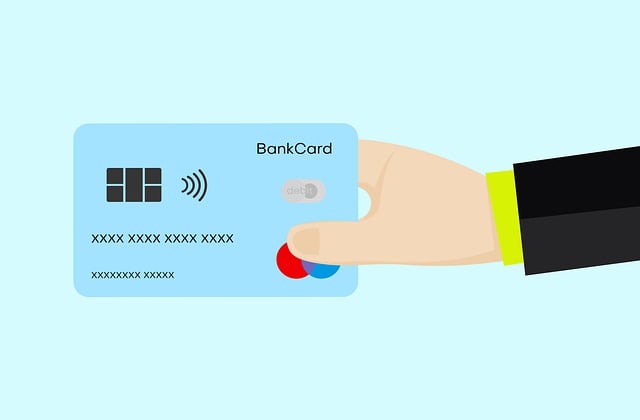Understanding and improving your credit score is crucial for financial opportunities in South Africa, offering access to better loan options and lower interest rates. To quickly boost your score, review your credit report for errors, reduce high credit card balances (below 30% utilization), close inactive accounts, pay all bills on time, and maintain a diverse credit mix. Avoid impulsive decisions like multiple new applications, late payments, and high balances to prevent temporary score drops.
Looking to boost your credit score in South Africa quickly? This guide offers practical tips and tricks to enhance your financial health. First, understand your credit score and its significance in the local context. Then, explore quick fixes for immediate improvement. Learn long-term strategies for sustained growth and avoid common pitfalls. By following these steps, you can swiftly increase your credit score and achieve financial stability.
- Understand Your Credit Score: Know What It Means for South Africans
- Quick Fixes to Improve Your Credit Score in the Short Term
- Building Long-Term Credit Worthiness: Strategies for Sustainable Growth
- Common Pitfalls to Avoid When Trying to Boost Your Credit Rating
Understand Your Credit Score: Know What It Means for South Africans

Understanding your credit score is a crucial step in improving it quickly. In South Africa, your credit score is a numerical representation of your creditworthiness, based on your credit history and financial behaviour. It’s important to know that a good credit score opens doors to better loan options, lower interest rates, and easier access to credit. However, a low credit score can limit these opportunities, making it essential for South Africans to grasp what this score means and how it impacts their financial lives.
When you know your credit score, you can identify areas that need improvement. This may include paying bills on time, reducing debt, or disputing any inaccuracies on your credit report. By taking proactive measures based on this understanding, you can quickly begin the process of increasing your credit score, putting yourself in a better financial position for the future.
Quick Fixes to Improve Your Credit Score in the Short Term

In South Africa, a strong credit score is essential for accessing loans, credit cards, and even certain types of employment. If your credit score needs a boost, there are some quick fixes that can help improve it in the short term. One effective strategy is to check your credit report regularly for errors or discrepancies. Many people find unexpected items on their reports, such as accounts they didn’t open or payments marked late when they were on time. Disputing these inaccuracies with the credit bureau can quickly raise your score.
Another immediate step is to pay down high credit card balances. Credit utilization, the percentage of your available credit you’re currently using, significantly impacts your score. Aim to keep this number below 30%. You can do this by paying off outstanding debt or increasing your credit limits (if approved), which will immediately reflect positively on your credit report. Additionally, consider closing old credit accounts that you rarely use; keeping them open, even if inactive, can help maintain a longer credit history, which is another factor in calculating your credit score.
Building Long-Term Credit Worthiness: Strategies for Sustainable Growth

Building a strong credit score is a marathon, not a sprint, and understanding this is crucial for your financial future in South Africa. To increase your credit score quickly and sustainably, focus on long-term creditworthiness. This involves consistent, responsible behaviour over time. One effective strategy is to pay all your bills on time; late payments can significantly damage your score. Another is to keep your credit utilisation low—this means not spending more than 30% of your available credit.
Diversifying your credit mix by using different types of credit responsibly (like credit cards, loans, and mortgages) also signals to lenders that you’re a responsible borrower. Regularly reviewing your credit report for errors or discrepancies is another smart move as it helps ensure accuracy and allows you to rectify any issues promptly. This strategic approach will not only help you improve your credit score but also build a solid financial foundation for the long term.
Common Pitfalls to Avoid When Trying to Boost Your Credit Rating

When attempting to improve your credit score, it’s crucial to steer clear of certain pitfalls that could set your progress back. One common mistake is impulsive decision-making, such as applying for multiple new credit cards or loans in a short period. Each application results in a hard inquiry on your credit report, which can temporarily lower your score. This is especially true if you’re applying for various types of credit simultaneously, as it may signal to lenders that you’re financial health is uncertain.
Another trap to avoid is missing payments or carrying a high balance on existing accounts. Late or missed payments are a significant factor in determining your credit rating, and building a history of timely payments is vital for improvement. Similarly, maintaining a low credit utilization rate—the amount of available credit you’re using compared to your total limit—is essential. High utilization can negatively impact your score, so aim to keep balances below 30% of your credit limits whenever possible.
Improving your credit score in South Africa is a journey that requires understanding, strategy, and discipline. By taking quick fixes like paying bills on time and reducing debt in the short term, you can see immediate improvements. However, for long-term credit worthiness, it’s crucial to adopt sustainable financial habits such as consistently saving and regularly reviewing your credit report. Stay mindful of common pitfalls like applying for multiple new credits at once, which can negatively impact your score. With dedication and informed decisions, you can swiftly enhance your credit rating and secure a brighter financial future.

